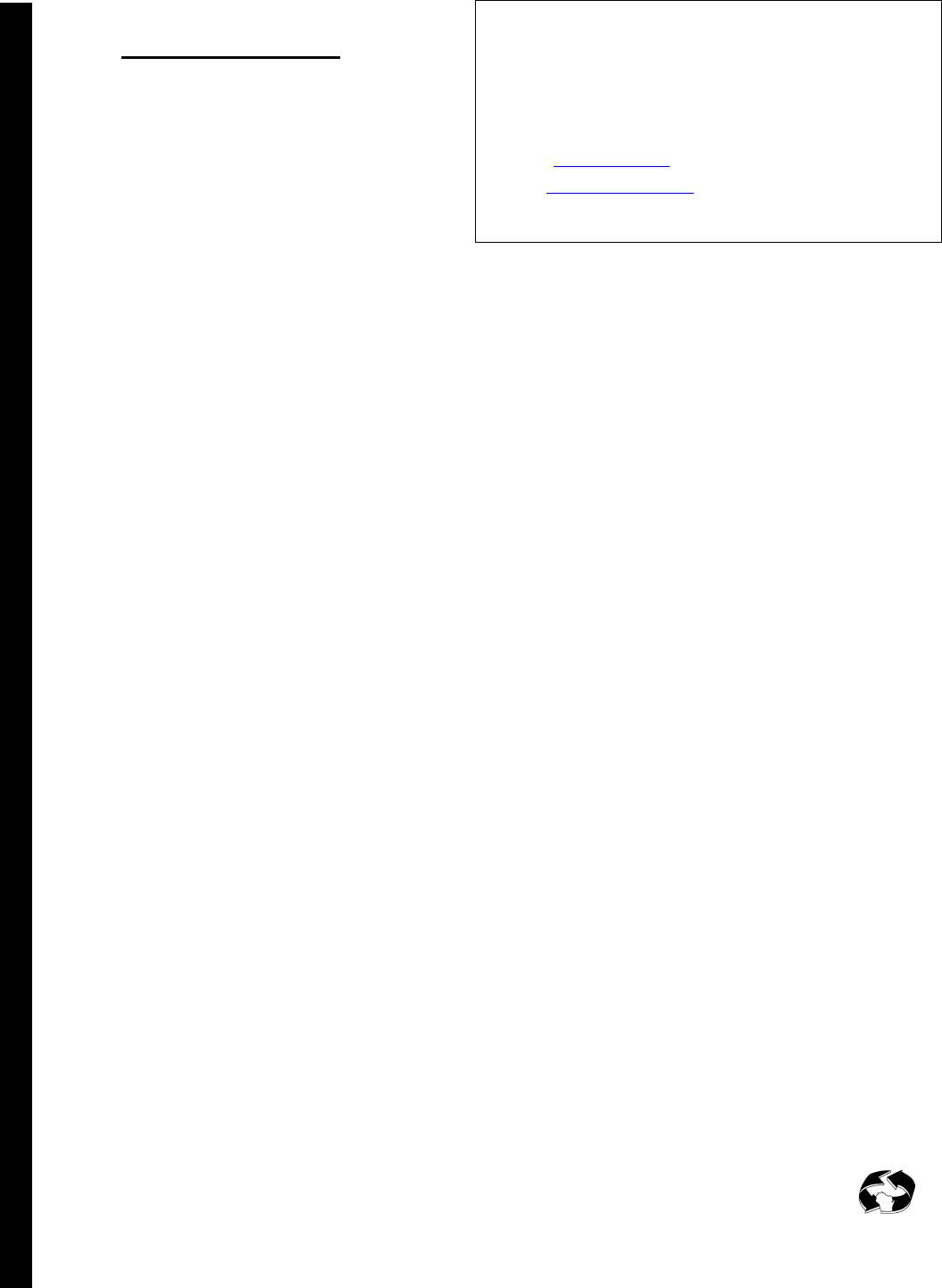
State of Wisconsin
Department of Revenue
Sales and Use Tax
Information for
Colleges, Universities,
and Technical
Colleges
Publication 204 (07/15)
Important Rate Changes!
BEGINNING JANUARY 1, 2024:
o Milwaukee County sales and use tax rate increases
from 0.5% to 0.9%
o City of Milwaukee imposes a new 2% sales and use tax
o See Fact Sheet 2414 Milwaukee Sales and Use Taxes
See the Sales Tax Rate Chart for a complete list of county
sales and use tax rates and their effective dates
Printed on
Recycled Paper
2
Table of Contents
Page
I. INTRODUCTION ............................................................................................................................................... 3
A. General ............................................................................................................................................................ 3
B. Definitions of College, University, and Technical College ............................................................................. 3
C. Difference Between the Sales and Use Tax ..................................................................................................... 4
D. Which Sales Are Subject to Sales and Use Taxes?.......................................................................................... 4
E. Tax Rate and Tax Base .................................................................................................................................... 4
F. Seller’s Permits ............................................................................................................................................... 4
G. Filing Tax Returns and Payment of Tax .......................................................................................................... 5
II. SALES BY COLLEGES, UNIVERSITIES, AND TECHNICAL COLLEGES............................................. 5
A. General ............................................................................................................................................................ 5
B. Taxable Sales, Leases, Licenses, or Rentals .................................................................................................... 6
C. Nontaxable Sales ............................................................................................................................................. 8
D. Student Organizations ................................................................................................................................... 10
III. PURCHASES BY COLLEGES, UNIVERSITIES, AND TECHNICAL COLLEGES ............................... 11
A. Operated by the State of Wisconsin or Another Federal or Wisconsin Governmental Unit ........................... 11
B. Private College, University, or Technical College .......................................................................................... 11
C. Student Organizations ..................................................................................................................................... 11
I V. CONSTRUCTION FOR COLLEGES, UNIVERSITIES, AND TECHNICAL COLLEGES.................... 12
V. RECORDKEEPING.......................................................................................................................................... 12
A. General .......................................................................................................................................................... 12
B. Exemption Certificates and Exemption Claims ............................................................................................ 12
VI. QUESTIONS OR ADDITIONAL INFORMATION ...................................................................................... 13
A. Department of Revenue Assistance ............................................................................................................... 13
B. Other Aids ..................................................................................................................................................... 13
VII. ANY SUGGESTIONS? ..................................................................................................................................... 15
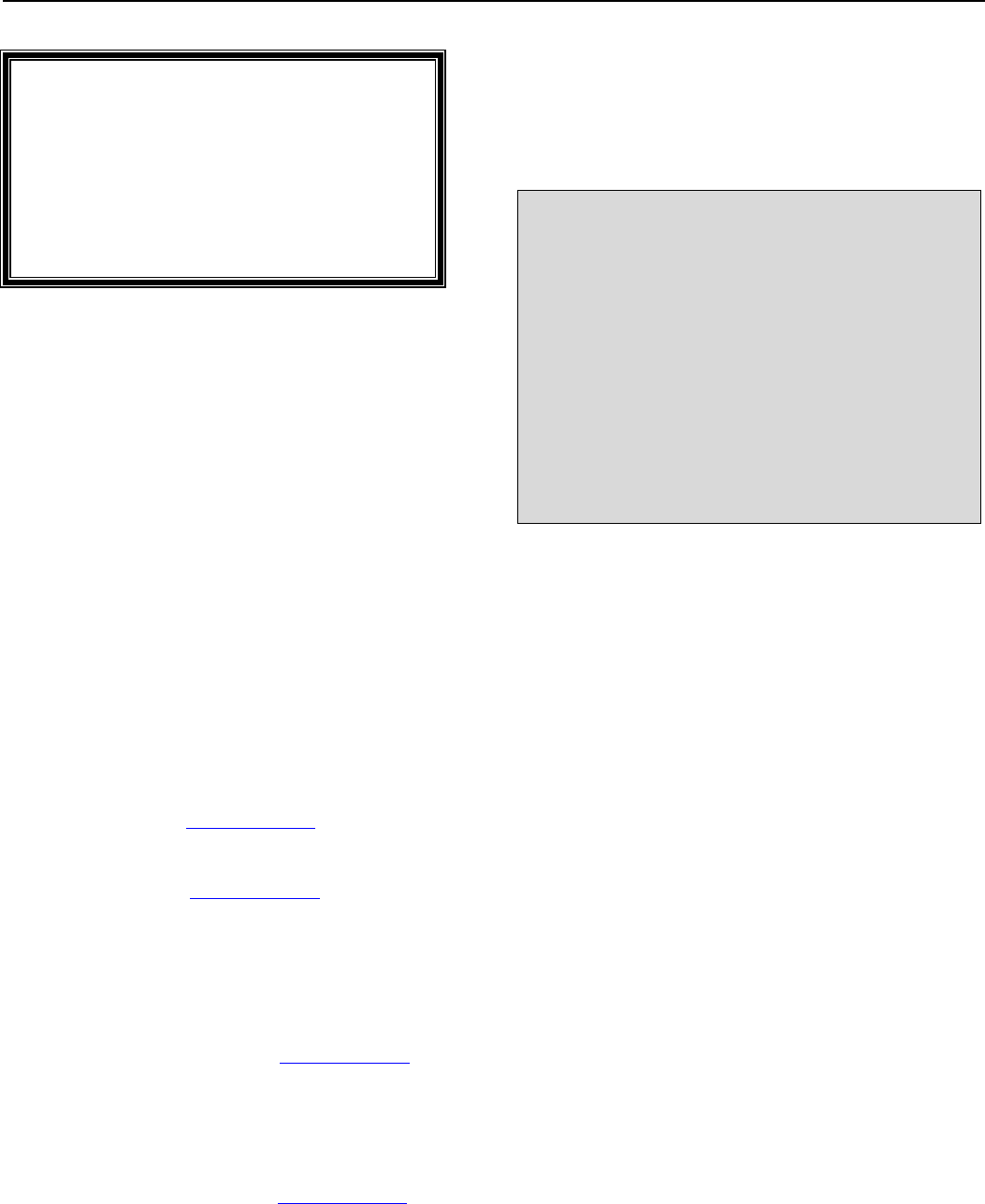
Sales and Use Tax Information for Colleges, Universities, and Technical Colleges
3
IMPORTANT CHANGES
Football Stadium Tax in Brown County
Ends September 30, 2015. Page 3.
Purchases by Non-Wisconsin Colleges and
Universities. Information has been added for
purchases by non-Wisconsin public and private
colleges and universities. Page 11.
I. INTRODUCTION
A. General
This publication provides information about the
Wisconsin sales and use tax as it affects colleges,
universities, and technical colleges.
Note: Certain sales which are subject to the 5%
state sales and use tax may also be subject to the:
(a) 0.5% county sales and use tax, (b) 0.1% or 0.5%
stadium sales and use tax (the 0.5% football stadi-
um tax ends September 30, 2015), (c) 0.5% food
and beverage local exposition tax, and (d) 0.5%
premier resort area sales tax for the City of Bay-
field, the City of Eagle River, and the Village of
Stockholm or 1.25% premier resort area sales tax
for the City of Wisconsin Dells and the Village of
Lake Delton. Additional information about these
taxes is contained in the following:
(a) County tax: Publication 201, Wisconsin Sales
and Use Tax Information, Section XVIII.
(b) Stadium tax: Publication 201, Wisconsin Sales
and Use Tax Information, Section XVIII. Ap-
plies to sales and purchases made in Brown,
Milwaukee, Ozaukee, Racine, Washington, and
Waukesha counties. Note: The football stadium
tax in Brown County ends September 30, 2015
(c) Local exposition taxes: Publication 410, Local
Exposition Taxes. Applies to sales and purchas-
es of certain lodging, food, beverages, and car
rentals in municipalities wholly or partially
within Milwaukee County.
(d) Premier resort area tax: Publication 403, Prem-
ier Resort Area Tax. Applies to certain types of
sellers and their sales of tangible personal prop-
erty; items, property, and goods listed in
Part I.D.2. to 4.; and taxable services in the Vil-
lage of Lake Delton, City of Wisconsin Dells,
City of Bayfield, the City of Eagle River, and
the Village of Stockholm.
CAUTION
• The information in this publication reflects the
position of the Wisconsin Department of Reve-
nue of laws enacted by the Wisconsin
Legislature and in effect as of July 1, 2015.
Laws enacted and in effect after that date, new
administrative rules, and court decisions may
change the interpretations in this publication.
• The examples and lists of taxable and nontaxa-
ble sales and purchases provided in this
publication are not all-inclusive. They merely
set forth common examples.
B. Definitions of College, University, and Technical
College
“School,” for purposes of this publication, means a
college, university, or technical college.
“College” and “university” mean a nonprofit or
public educational institution which provides an ed-
ucational program for which it awards a bachelor’s
or higher degree, or provides a program which is
acceptable for full credit toward such a degree or a
program of training to prepare students for gainful
employment in a recognized occupation, and admits
as regular students only individuals having a certifi-
cate of graduation from a high school or the
recognized equivalent of such a certificate. Exam-
ples include the University of Wisconsin, Alverno
College, Beloit College, Cardinal Stritch College,
Carroll College, Carthage College, Concordia Uni-
versity, Edgewood College, Lakeland College,
Lawrence University, Marian College, Marquette
University, Mount Mary College, Mount Senario
College, Northland College, Ripon College, St.
Norbert College, Silver Lake College, Viterbo Col-
lege, and Wisconsin Lutheran College.
“Technical college” is a school subject to regulation
established by the Wisconsin Technical College
System Board. Examples include Blackhawk Tech-
nical College, Chippewa Valley Technical College,

Publication 204
4
Fox Valley Technical College, Gateway Technical
College, Lakeshore Technical College, Madison
Area Technical College, Mid-State Technical Col-
lege, Milwaukee Area Technical College, Moraine
Park Technical College, Nicolet Area Technical
College, Northcentral Technical College, Northeast
Wisconsin Technical College, Southwest Wisconsin
Technical College, Waukesha County Technical
College, Western Wisconsin Technical College, and
Wisconsin lndianhead Technical College.
C. Difference Between the Sales and Use Tax
1. Sales tax: The Wisconsin sales tax is a 5% tax
imposed on the sales price of colleges, universi-
ties, and technical colleges who make sales of
taxable products and services at retail in Wis-
consin. Generally, a sale of taxable products or
services is at retail unless the buyer purchases
the property for the purpose of reselling it.
2. Use tax: The Wisconsin use tax is a 5% tax im-
posed on the purchase price of taxable products
and services that are used, stored, or consumed
in Wisconsin, upon which a Wisconsin sales or
use tax has not previously been paid.
Note: Wisconsin universities, colleges, and
technical colleges are not subject to use tax.
The reason for this is that all purchases by Wis-
consin governmental units and nonprofit
schools organized and operated exclusively for
religious, educational, scientific, or charitable
purposes are exempt from use tax.
D. Which Sales Are Subject to Sales and Use
Taxes?
Sales, licenses, leases, and rentals of tangible per-
sonal property, certain coins and stamps, certain
leased property affixed to realty, certain digital
goods, and certain services are subject to the Wis-
consin state sales tax. Note: Certain sales by a
college, university, or technical college are exempt
from tax. See Part II. for examples of the tax treat-
ment of specific products.
For further information about these taxable products
and services, see Publication 201, Wisconsin Sales
and Use Tax Information.
E. Tax Rate and Tax Base
The tax rate of 5% is the same for both the Wiscon-
sin state sales and use tax. The sales tax is based
upon the sales price from retail sales. The use tax is
based upon the purchase price of the taxable prod-
uct or service purchased.
If a sale is subject to the 0.5% county tax, the tax
rate is 5.5% (5% state tax and 0.5% county tax). If
the sale is subject to the 0.5% football stadium tax*,
the tax rate is 5.5%. If the sale is subject to the
0.1% baseball stadium tax, the tax rate is 5.1%, or
5.6% if both county tax and the baseball stadium
tax apply.
*The football stadium tax ends September 30, 2015.
F. Seller’s Permits
1. Who Must Have a Seller’s Permit?
Every college, university, and technical college
making taxable sales in Wisconsin, regardless
of whether its sales are mercantile in nature, is
required to have a seller’s permit, unless all
sales by the seller are exempt from sales and
use taxes.
The seller’s permit shows that the seller is
properly registered with the Department of
Revenue, as required by law. It is a misde-
meanor to make taxable sales of property,
items, goods, or services without a seller’s per-
mit.
2. Application
A person may apply for a seller’s permit using
one of the following methods:
• Use the Department of Revenue’s online
Business Tax Registration Process to sub-
mit the application electronically.
• Complete Form BTR-101, Application for
Business Tax Registration, and mail it to
the Department of Revenue. Keep a copy of
the completed application for your records.
You should apply for a seller’s permit at least
three weeks before your business operations
begin.

Sales and Use Tax Information for Colleges, Universities, and Technical Colleges
5
3. Business Tax Registration Fees
Colleges, universities, and technical colleges
applying for a seller’s permit may be required
to pay a Business Tax Registration (BTR) fee
of $20. The initial BTR fee covers a period of
two years. At the end of that period, a $10 BTR
renewal fee applies. The Department of Reve-
nue will send a renewal notice.
G. Filing Tax Returns and Payment of Tax
Every holder of a Seller’s Permit, Use Tax Certifi-
cate, or Consumer’s Use Tax Certificate must file a
return for each reporting period, even if no tax is
due for that period. A reporting period may be
monthly, quarterly, or annually, depending on the
person’s annual tax liability. The Department of
Revenue will notify each person of their reporting
period and the due date for filing returns.
The law requires that sales and use tax returns be
filed electronically. Wisconsin sales and use tax re-
turns should be filed using one of the following
electronic filing methods:
1. My Tax Account
My Tax Account is a free, secure online appli-
cation that allows you to file and pay your sales
and use taxes electronically. It performs the
necessary computations of tax based on infor-
mation that you enter and allows you to make
your tax payment via electronic funds transfer,
credit card, or paper check. My Tax Account al-
so allows you to:
• View business tax filing and payment histo-
ry and identify any tax periods that need
attention.
• Change your address, obtain an extension
to file a return, or inactivate your account.
• File a buyer’s claim for refund of sales tax
paid to a seller in error.
• Appeal adjustment notices.
To use My Tax Account, you must obtain a lo-
gon ID and password from the Department of
Revenue. Go to the My Tax Account Common
Questions on the Department of Revenue’s
website for more information, including how to
obtain your logon ID and password.
2. Sales TeleFile
You can file your Wisconsin sales and use tax
return with any touch-tone telephone using Te-
leFile. This program accepts four payment
types: Direct withdrawal from your checking or
savings account (only available during the call
in which you file your return); credit card,
check, or money order. To use TeleFile, obtain
a Sales TeleFile Worksheet and Payment
Voucher from the Department of Revenue’s
website. When you have completed the work-
sheet, call (608) 261-5340 (Madison number) or
(414) 227-3895 (Milwaukee number) to actual-
ly file your return.
3. eFile Transmission
The eFile Transmission program is a service for
taxpayers using approved private vendors’
software or who have the technical expertise to
create a file in XML format. eFile transmission
places return data into a file format that can be
directly processed into the Department of Rev-
enue system. Using secure transmission over
the Internet you can submit a payment at the
same time that you file your return using ACH
debit or ACH credit. You will receive an email
acknowledgement to confirm receipt of a suc-
cessful file transmission.
If you have questions about electronic filing or
payments, contact the department by writing to
Wisconsin Department of Revenue, Electronic
Funds Transfer Assistance, Mail Stop 3-80,
PO Box 8949, Madison, WI 53708-8949; calling
(608) 266-2776; or emailing at DOR-
SalesandUse@revenue.wi.gov.
II. SALES BY COLLEGES,
UNIVERSITIES, AND TECHNICAL
COLLEGES
A. General
All sales of property, items, and goods are subject
to the sales tax, unless an exemption applies. How-

Publication 204
6
ever, sales of only certain services are taxable. This
portion of the publication describes how the sales
tax applies to sales by colleges, universities, and
technical colleges.
B. Taxable Sales, Leases, Licenses, or Rentals
Caution: The following sales are not taxable if they
are mandatory charges which are included in the
billing for tuition, as explained in Part II.C.1.
1. Property, Items, and Goods.
Important: If the school charges the purchaser
for the delivery of any of the following items,
the school’s total charge, including the shipping
and handling charge, is taxable.
• Over-the-counter sales of magazines, but
not newspapers.
• Books, yearbooks, annuals, lecture notes,
directories, and bulletins.
• Student course materials (e.g., lab sup-
plies).
• Textbooks, whether a paper version or digi-
tal version.
• Digital books.
• Digital audio works.
• Digital audiovisual works.
• Certain other digital goods. See Publica-
tion 240, Digital Goods, for additional
information.
• Sales of candy, soft drinks, dietary supple-
ments, and prepared foods, including sales
to teachers and visitors.
Exception: Sales of candy, soft drinks, die-
tary supplements, and prepared foods that
are furnished in accordance with any con-
tract or agreement or paid to the school
through the use of an account of the school
to the following are exempt from tax (see
Part II.C.2.):
– Students who consume the candy, soft
drinks, dietary supplements, or pre-
pared foods and are enrolled for credit
at the college, university, or technical
college; or
– A National Football League team.
Refer to Publication 220, Grocers - How
Do Wisconsin Sales and Use Taxes Affect
Your Operations? for more information in-
cluding the definitions of "candy," "soft
drinks," "dietary supplements," and "pre-
pared food."
• Fermented malt beverages (e.g., beer) and
intoxicating liquors
• Food for animals
• Food used in research and experimentation
• Gift shop sales.
• Vending machine sales of:
o Soft drinks
o Candy and chewing gum
o Heated foods, heated beverages,
and other prepared foods
o Dietary supplements
o Fermented malt beverages and in-
toxicating liquor
o Hygiene products
o Toiletries
• Photocopies, microfilm, videotape, or CD
or DVD copies.
Exception: Sales of photocopies of public
or confidential records by schools operated
by the state, or another governmental unit
that is included in the definition of “au-
thority” in sec. 19.32(l), Wis. Stats., are
exempt. This exemption applies primarily
to transcripts and other records. Copyright-
ed printed material is not a public record.
Therefore, photocopy charges in a library
generally are taxable.
Caution: Private schools are not included
in the definition of “authority’ and all re-
ceipts from their sales of photocopies are
taxable, unless some other exemption ap-
plies.
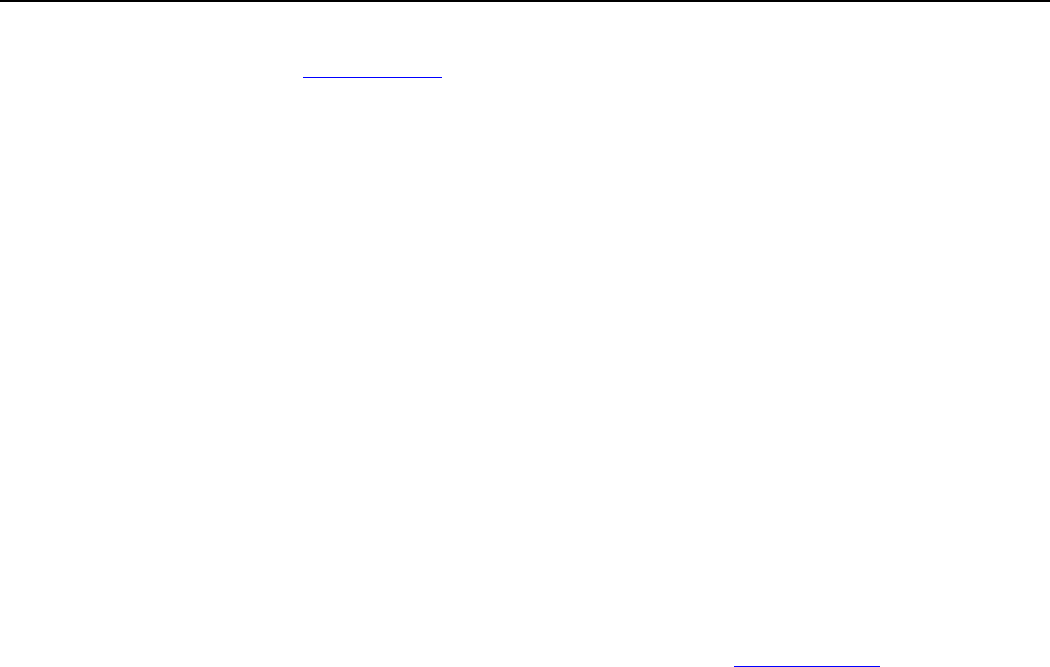
Sales and Use Tax Information for Colleges, Universities, and Technical Colleges
7
• Auction sales. (See Publication 217, Auc-
tioneers, for more information.)
• Cap and gown rentals, including collections
made by the school for a private vendor.
• Uniforms for employees or others.
• Parts and labor for repairing motor vehicles
or other tangible personal property, items,
or goods. These charges are taxable even
though the customer is only charged for
parts at the school’s cost.
• Motor vehicles, boats, snowmobiles, rec-
reational vehicles as defined in
sec. 340.01(48r). Wis. Stats., trailers, semi-
trailers, all-terrain vehicles, utility terrain
vehicles, and aircraft.
• Computer hardware and prewritten com-
puter software.
• Fundraiser sales.
• Portable stages, public address systems,
chairs, pianos, forklift trucks, music racks,
spotlights, and projectors rented to groups
using a school’s theater.
2. Taxable Services
• Parking or providing parking space for mo-
tor vehicles and aircraft, and docking or
providing storage space for boats.
Note: Parking fines are not taxable.
• Admissions to events and places which are
amusement, athletic, entertainment, or rec-
reational in nature and the furnishing, for
dues, fees, or other considerations, the priv-
ilege of access to clubs or the privilege of
having access to, or the use of, amusement,
entertainment, athletic, or recreational facil-
ities.
Examples include:
– Admissions to sporting events, plays,
theatrical and musical performances,
and dances.
– Access to ball diamonds, tennis courts,
swimming pools, gymnasiums, and golf
courses.
– Players’ or other persons’ use of the
school’s ball diamonds or football
fields.
– Season tickets for amusement, athletic,
entertainment, or recreational events.
– Optional student activity fees which
admit the student to taxable events, ser-
vices, or facilities, or which permit the
student to use tangible personal proper-
ty.
– Intramural fees paid by students for use
of recreational facilities.
– Fees for bowling, unless for class in-
struction.
– Rentals of auditoriums, gymnasiums,
and other multipurpose recreational or
entertainment type facilities to persons
who use the facilities for their self-
entertainment. However, see Part II.C.4
for exceptions.
See Fact Sheet 2107, Rentals of Multi-
purpose Facilities, for additional
information and examples.
• Telecommunications and ancillary services,
unless the services are furnished by the
school with lodging services.
• Internet access services.
• Services that consist of recording telecom-
munications messages and transmitting
them to the purchaser of the service or at
the purchaser’s direction (e.g., text messag-
es, email blasts).
Exception: These telecommunications
messaging services are not taxable if they
are merely incidental to a nontaxable ser-
vice provided to the purchaser.
• Laundry, dry-cleaning, and pressing ser-
vices.
Exception: Receipts from self-service
laundry machines are not taxable.
• Landscaping and lawn maintenance ser-
vices.
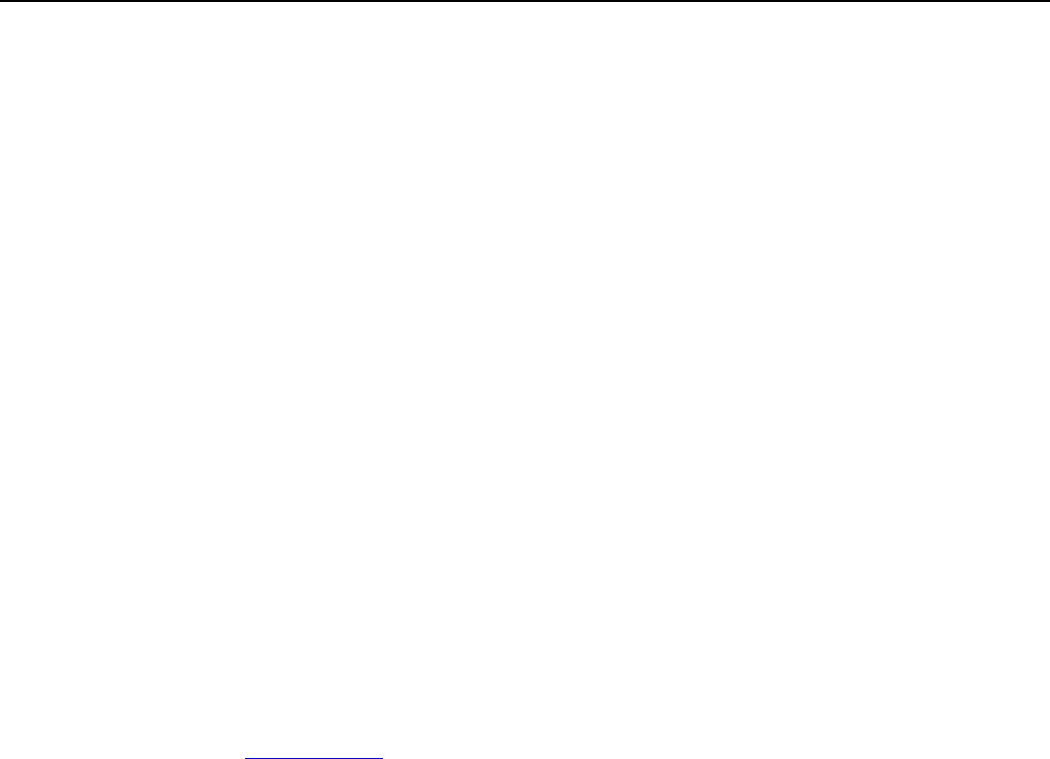
Publication 204
8
• Cable television services, including instal-
lation or hookup charges.
• Meals (i.e., prepared food), tickets to thea-
tre performances, etc., provided to persons
in exchange for donations are subject to
sales tax to the extent of their value when
the donation equals or exceeds that amount.
Example: Patrons donate $100 and receive
a $10 meal. Their actual donation is $90.
The $10 portion for the meal is subject to
the sales tax.
• Printing or imprinting tangible personal
property or other property, items, or goods,
except if the printing results in one of the
following:
– Exempt catalogs and their mailing en-
velopes
– Advertising and promotional direct
mail (effective July 1, 2013)
– Printed advertising materials which will
be subsequently transported outside
Wisconsin by the purchaser for use
solely outside Wisconsin
See Part VI.B. of Publication 235, Advertising
Companies, for information about exemptions
for certain printed materials, including the defi-
nition of and explanation of advertising and
promotional direct mail.
C. Nontaxable Sales
Caution: The nontaxable sales and receipts illus-
trated below are applicable to schools. The
examples given may not apply to activities con-
ducted by other entities.
1. Tuition, activity, and course instruction fees.
Charges for student tuition are not taxable be-
cause they are for educational services. If the
billing for tuition includes mandatory charges
for materials (which are incidental to the educa-
tional services) or mandatory charges for
otherwise taxable services, the entire billing is
considered to be for a nontaxable educational
service. This is the case whether or not the
mandatory charges for materials or taxable ser-
vices are separately stated on the billing for tui-
tion issued to the student.
a. Examples of sales, licenses, leases, or rent-
als of tangible personal property which are
not taxable include:
• Mandatory charges for textbooks, la-
boratory materials, or supplies and
equipment rentals included in the bill-
ing for tuition.
• Mandatory rentals of golf clubs includ-
ed in the billing for tuition for a
specific educational course in golfing.
b. Examples of sales of services which are not
taxable include:
• Mandatory student activity fees which
are included in the billing for tuition.
These activity fees may provide admis-
sions or reduced admissions to social,
sporting, recreational, or athletic events
or places, or to parking spaces.
Example: If a charge of $50 is includ-
ed in the activity fee for parking
privileges, and all students must pay
this fee, regardless of whether or not
they drive, the $50 charge is not taxa-
ble.
Caution: If only the students who are
actually going to use the parking facili-
ties are charged the $50 parking fee, the
$50 charge is taxable.
• Admission to a golf course or bowling
center which is required as part of a
specific course in golf or bowling.
Minor deviations in billing procedures will not
void this basic exemption and the transaction
will still be exempt. For example:
• A course is dropped two weeks after the
original registration date and the student
pays for a substitute course at this later
date.

Sales and Use Tax Information for Colleges, Universities, and Technical Colleges
9
• Activity fees are charged all students at the
main campus, but satellite locations not of-
fering activities do not have an activity fee.
• Each tuition billing includes charges for
different materials, depending on courses.
• Separate charges for required textbooks are
included in the original tuition billing and
the student subsequently picks up the books
at the college operated bookstore.
Caution:
(1) Except as described as minor deviations
above, mandatory charges for materials and
other property, items, and goods billed sub-
sequent to the billing for tuition are subject
to sales tax.
(2) Taxable services billed subsequent to the
billing for tuition are taxable, unless the
services billed are required by a specific
educational course and, therefore, consid-
ered to be part of the nontaxable
educational service.
2. Food and food ingredients, including candy,
soft drinks, dietary supplements, and prepared
food, furnished in accordance with any contract
or agreement or paid for to such institution
through the use of an account of such institu-
tion, by a public or private institution of higher
education, are exempt if:
• The items are furnished to an undergraduate
student, a graduate student, or a student en-
rolled in a professional school if the student
is enrolled for credit at that institution and
if the items are consumed by that student,
or
• The items are furnished to a National Foot-
ball League team.
Caution: The following sales of food products
are subject to Wisconsin sales or use tax, unless
an exemption applies (e.g., sales to Wisconsin
governmental units, sales for resale):
• Prepared foods, candy, soft drinks, and die-
tary supplements sold to professors,
teachers, and administrators.
• Prepared foods, candy, soft drinks and die-
tary supplements sold at wedding
receptions.
• Prepared foods, candy, soft drinks and die-
tary supplements sold to employees.
3. Furnishing rooms or lodging to students or any
other persons, regardless of the duration.
4. Rental of auditoriums, gymnasiums, and other
multipurpose facilities (including associated
charges for heat, light, and janitor fees) are not
taxable admissions to amusement, athletic, en-
tertainment, or recreational facilities when:
• The facility is rented to a promoter or pro-
fessional group which will convert it to a
place of recreation, amusement, or enter-
tainment and sell admissions to the public.
The promoter or professional group must
provide the school with a fully completed
exemption certificate (e.g., Form S-211)
claiming resale.
• The facility is rented to a promoter or group
which conducts a nonrecreational-type
event on the premises, such as a religious
meeting, graduation ceremony, political
meeting, trade show, antique show, or wed-
ding ceremony.
See Fact Sheet 2107, Rentals of Multipurpose
Facilities, for additional information and exam-
ples.
5. Membership dues in a school’s student union.
6. Admission to facilities that are used primarily
for fitness or health.
An admission to a facility is primarily for fit-
ness and health if users spend more than 50% of
their overall time using the following nontaxa-
ble facilities:
• Aerobics classes
• All lessons (swimming, tennis, golf, etc.)
• Free weights and machines
• Whirlpool, sauna
• Running track (other than for races)

Publication 204
10
• Exercycles, lifecycles
• Rowing machines
• Stepping machines
• X-country ski machines
• Treadmills
• Tanning booths and beds
• Massage table/room
A reasonable method of determining nontaxable
use is a representative survey of participants
and their time spent in each facility. Schools
must keep adequate records to substantiate how
they determine the primary purpose of the par-
ticipants’ use of the facilities.
Example 1: A school’s health and fitness center
has two membership plans. The blue card
membership ($30/month) entitles members to
use the weight room, swimming pool, running
track, and exercise machines. A separate fee is
charged to blue card members for the use of
racquetball courts. The gold card membership
($40/month) entitles members to use all of the
above facilities and also entitles the members to
use the racquetball courts with no additional
charge.
Based on a survey of blue card members, the
club has found that these members spend 30%
of their time swimming (free swim or lap swim,
no lessons: taxable activity) and the remaining
70% of their time in nontaxable activities, in-
cluding running, exercising, and lifting weights.
Since the primary purpose of the blue card
members is to use the facilities for nontaxable
activities, the club’s receipts from all of the blue
card memberships are not subject to sales tax.
Based on a survey of gold card members, the
club has found that these members spend 75%
of their time swimming or playing racquetball
(taxable activities) and the remaining 25% of
their time in nontaxable activities. Since the
primary purpose of the gold card members is to
use the facilities for taxable activities, the club’s
receipts from all of the gold card memberships
are subject to sales tax.
Example 2: A school’s health and fitness center
charges a single fee to its members for the use
of tennis courts, racquetball courts, a swimming
pool, a running track, and exercise machines. In
a study conducted by the club, in which it ob-
served and recorded the use made of each area
of the club, it found that 65% of the members’
time was spent in taxable activities (playing
tennis, racquetball, and swimming) and the re-
maining 35% of the members’ time was spent
in nontaxable activities (running and exercis-
ing).
Since the primary purpose of the members was
to use the facilities for taxable activities, all of
the club’s membership fees are subject to sales
tax.
Note: Even in situations where the primary
purpose of the members is to use the facilities
for nontaxable activities and, therefore, the or-
ganization’s fee has been determined to be
nontaxable, any separate charges for taxable ac-
tivities, services, or property are subject to sales
tax.
7. Lessons.
8. Charges for mandatory or optional appliance
hookups or rentals of refrigerators, microwaves,
etc., to dorm residents by the school, but not
cable television services. Appliance rentals
from other vendors are taxable unless the ven-
dor has a contract with the school and the
students directly pay the school.
9. Library and book fines and charges for books
not returned.
10. Advertising space in newspapers, brochures,
and programs.
D. Student Organizations
1. Independent, nonprofit student organizations
which control their own funds, and are not oth-
erwise required to hold a seller’s permit, may
not be required to charge sales tax on their sales
of otherwise taxable tangible personal property,
property, items, goods, or services if the sales
qualify as “occasional sales.”

Sales and Use Tax Information for Colleges, Universities, and Technical Colleges
11
For additional information about sales by stu-
dent organizations and the occasional sale
exemption, see the following:
• Publication 206, Sales Tax Exemption for
Nonprofit Organizations.
• Publication 245, Sales and Use Tax Infor-
mation for Schools, Part VII., "School-
Related Organizations."
2. If a student organization is a part of the school,
the tax treatment of its sales is the same as that
of the school.
III. PURCHASES BY COLLEGES,
UNIVERSITIES, AND TECHNICAL
COLLEGES
The exemption that a college, university, or tech-
nical college has for its purchases does not extend
to purchases by others, such as contractors hired by
the college, university, or technical college or an-
other state's university system.
A. Operated by the State of Wisconsin or Another
Federal or Wisconsin Governmental Unit (e.g.,
UW Madison, UW Eau Claire, Madison Area
Technical College)
All taxable products and services may be purchased
exempt from Wisconsin sales or use tax. To claim
the exemption, the college, university, or technical
college must give the seller one of the following:
1. A completed purchase order or similar docu-
ment clearly identifying the college, university,
or technical college as the purchaser.
2. A Wisconsin Sales and Use Tax Exemption
Certificate (Form S-211 or Form S-211-SST).
3. The Certificate of Exempt Status (CES) number
issued by the Department of Revenue.
CAUTION: Non-Wisconsin public colleges and
universities DO NOT qualify for exemption from
Wisconsin sales tax on their purchases. A non-
Wisconsin public college or university does not
qualify for a Wisconsin CES number.
B. Private College, University, or Technical College
(e.g., private nonprofit schools which are not oper-
ated by the State of Wisconsin or another
governmental unit or agency, but which are operat-
ed exclusively for religious, charitable, scientific, or
educational purposes and have been issued a CES
by the Wisconsin Department of Revenue)
All taxable products and services may be purchased
exempt from Wisconsin sales or use tax. To claim
the exemption, the school must give the seller the
CES number issued by the Wisconsin Department
of Revenue or an exemption certificate (Form S-
211 or Form S-211-SST).
Note: Non-Wisconsin private colleges and universi-
ties qualify for exemption from Wisconsin sales tax
on their purchases if the college or university is
operated exclusively for religious, charitable, scien-
tific, or educational purposes. A non-Wisconsin
qualifying school is not required to obtain a CES
number in order to make exempt purchases. The
school should provide the vendor with a fully com-
pleted exemption certificate (Form S-211 or
Form S-211-SST) claiming the exemption for or-
ganizations organized and operated exclusively for
religious, charitable, scientific or educational pur-
poses.
C. Student Organizations
1. Student organizations which are a part of the
school may make purchases exempt from sales
tax in the same manner as their respective
schools, as outlined in Part III.A. or B. above.
2. Student organizations which are separate from
the school, but are organized and operated ex-
clusively for religious, charitable, scientific, or
educational purposes, may qualify for a CES
and should apply to the Wisconsin Department
of Revenue for their own number. The school’s
CES number should not be used.
For additional information, see Publication 245,
Sales and Use Tax Information for Schools,
Part VII, "School-Related Organizations."

Publication 204
12
IV. CONSTRUCTION FOR COLLEGES,
UNIVERSITIES, AND TECHNICAL
COLLEGES
Even though a contractor is constructing, altering, re-
pairing, or improving real property for a school, sales of
building materials to the contractor for use in real prop-
erty construction are taxable. The reason for this
treatment is that the contractor is the consumer of the
building materials used in constructing, altering, repair-
ing, or improving the real property. Therefore, the sale
to the contractor is a retail sale and is subject to tax.
Note: The exemption that a college, university, or tech-
nical college has for its purchases does not extend to
purchases by others, such as contractors hired by the
college, university, or technical college or another
state's university system.
For more information about construction for schools
and other exempt entities, see Publication 207, Sales
and Use Tax Information for Construction Contractors.
V. RECORDKEEPING
A. General
Every school required to have a seller’s permit must
keep adequate records of business transactions to
enable the school, as well as the Department of
Revenue, to determine the correct amount of tax for
which the school is liable. The law requires that all
persons (including schools) must report their sales
using the accrual accounting method, unless the
Department of Revenue determines an undue hard-
ship would result. The cash basis is then permitted.
Schools selling taxable products or services that are
sourced to a county which has adopted the county
tax or a stadium district must also keep records
showing the sales and use tax due in that county or
stadium district.
See sec. Tax 11.92, Wis. Adm. Code, "Records and
record keeping,"
B. Exemption Certificates and Exemption Claims
If a school claims that part or all of its retail sales of
taxable products and services are exempt from sales
and use tax, the school must keep a record of the
name and address of the person to whom the ex-
empt sale was made, the date of sale, the article
sold, the amount of exemption, and the reason the
sale was exempt from tax.
The reason for keeping such records is that the sales
and use tax law provides that all receipts are taxable
until the contrary is established. The seller (school)
has the burden of proving that a sale of the proper-
ty, item, good, or taxable service is exempt, unless
the seller takes a certificate (or other information as
described in Part V.B.3. and 4. below) in an ap-
proved form from the purchaser no more than 90
days after the date of the sale which indicates that
the property, item, good, or service being purchased
is for resale or is otherwise exempt.
Four common reasons that sales of taxable products
and services may be exempt are:
1. The purchaser furnishes the seller an exemption
certificate claiming resale. The certificate is
given to the seller because the purchaser de-
clares that he or she is going to resell the item
or service.
2. The purchaser uses the item purchased in an
exempt manner (e.g., the item is going to be
used exclusively and directly in manufacturing
or in farming and is, therefore, exempt). The
seller should obtain a completed exemption cer-
tificate from the purchaser.
3. The purchaser is an exempt organization (such
as a church, federal governmental unit, federal-
ly recognized American Indian tribe or band in
Wisconsin, or Wisconsin governmental unit, in-
cluding Wisconsin municipalities and public
schools). Sales to federal and Wisconsin
governmental units, including Wisconsin mu-
nicipalities and public schools, and sales to any
federally recognized American Indian tribe or
band in Wisconsin do not have to be supported
by exemption certificates. However, an exemp-
tion certificate, a copy of the purchase order
from the governmental unit, or an invoice copy
indicating the unit’s CES number must be re-
tained as part of the seller’s records.
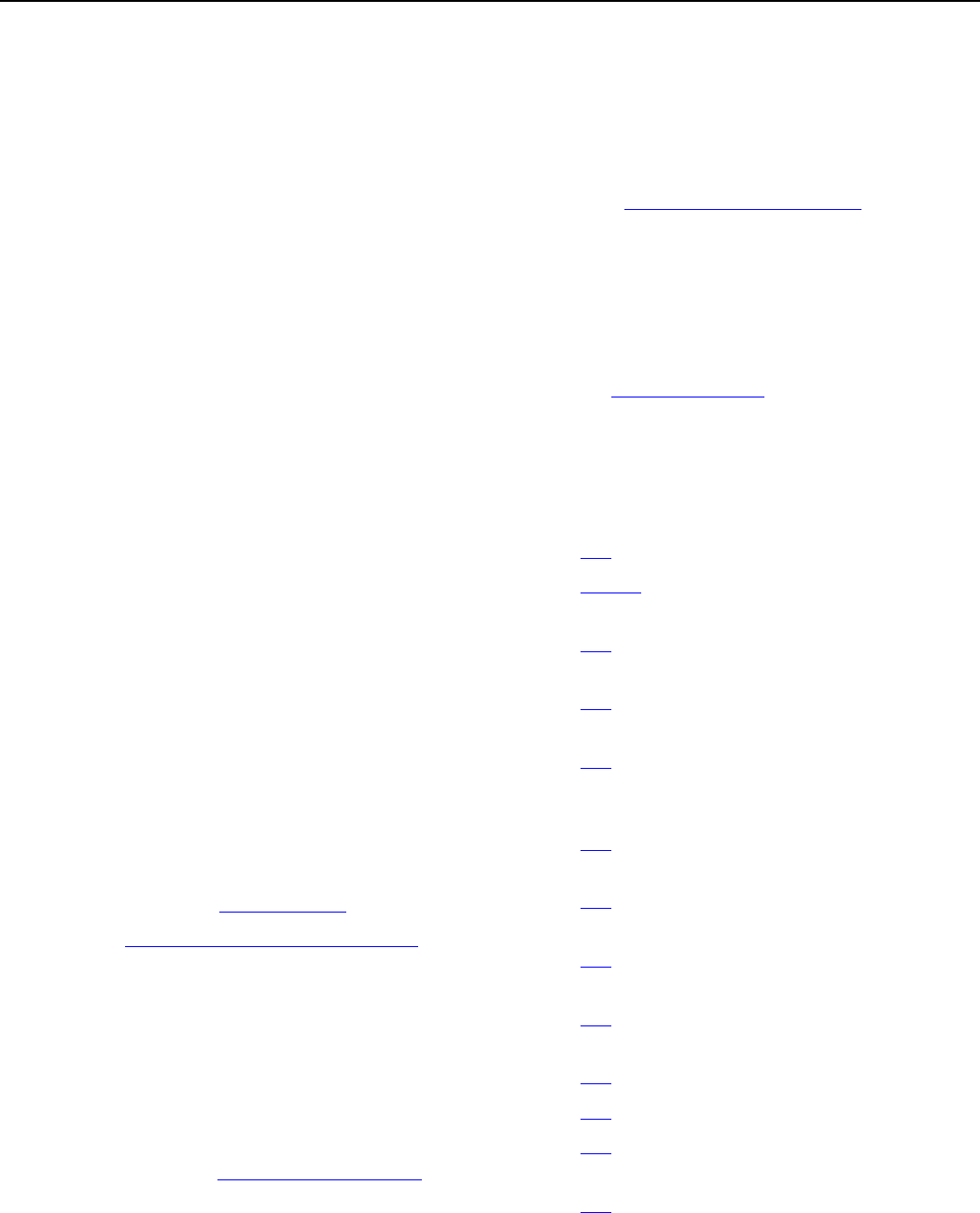
Sales and Use Tax Information for Colleges, Universities, and Technical Colleges
13
For exempt sales to organizations holding a
CES number (such as a church), the number
should be recorded on the invoice or an exemp-
tion certificate obtained.
Nonprofit organizations organized and operated
exclusively for religious, charitable, scientific,
or educational purposes, or for the prevention
of cruelty to children or animals, may apply to
the Department of Revenue for a CES number
and if approved, will be issued an exempt status
number (CES number) by the department.
4. The purchaser furnishes the seller (a) a copy of
its Wisconsin direct pay permit or (b) a state-
ment that the purchaser holds a Wisconsin
direct pay permit, the permit number, and the
date the permit was issued. The purchaser is
subject to Wisconsin use tax on the purchase
price if the product or service purchased is used
in a taxable manner.
Note: If exemptions are claimed for any of the
above four reasons, the seller must keep the com-
pleted certificates, purchase orders, and invoices to
prove that the sales were exempt.
VI. QUESTIONS OR ADDITIONAL
INFORMATION
A. Department of Revenue Assistance
If you have a question about Wisconsin sales and
use taxes, you may contact the Department of Rev-
enue as follows:
Visit our website . . . revenue.wi.gov
Email . . . DORSalesandUse@revenue.wi.gov
Write . . . Wisconsin Department of Revenue
Mail Stop 5-77
PO Box 8949
Madison, WI 53708-8949
Telephone… (608) 266-2776
Fax . . . (608) 267-1030
You may also contact any of the Department of
Revenue offices. See the department's website for a
listing of offices and their current hours.
B. Other Aids
Other informational aids available include:
1. Sales and Use Tax Report
The Sales and Use Tax Report is published
quarterly by the Department of Revenue. It in-
cludes general information about sales and use
tax, including new tax laws enacted by the leg-
islature.
Notification of new Sales and Use Tax Reports
will be sent to subscribers of the sales and use
tax electronic mail list.
2. Publications and Fact Sheets
Publications
No. Title
200 Electrical Contractors
201-PS Sales and Use Tax Information (Re-
flects the law on September 30, 2009)
202 Sales and Use Tax Information for Mo-
tor Vehicle Sales, Leases, and Repairs
203 Sales and Use Tax Information for
Manufacturers
204 Sales and Use Tax Information for Col-
leges, Universities, and Technical
Colleges
206 Sales Tax Exemptions for Nonprofit
Organizations
207 Sales and Use Tax Information for
Contractors
209 Sales and use Tax Information for Wis-
consin Counties and Municipalities
210 Sales and Use Tax Treatment of Land-
scaping
211 Cemetery Monument Dealers
214 Do You Owe Use Tax? (Businesses)
216 Filing Claims for Refund of Sales or
Use Tax
217 Auctioneers
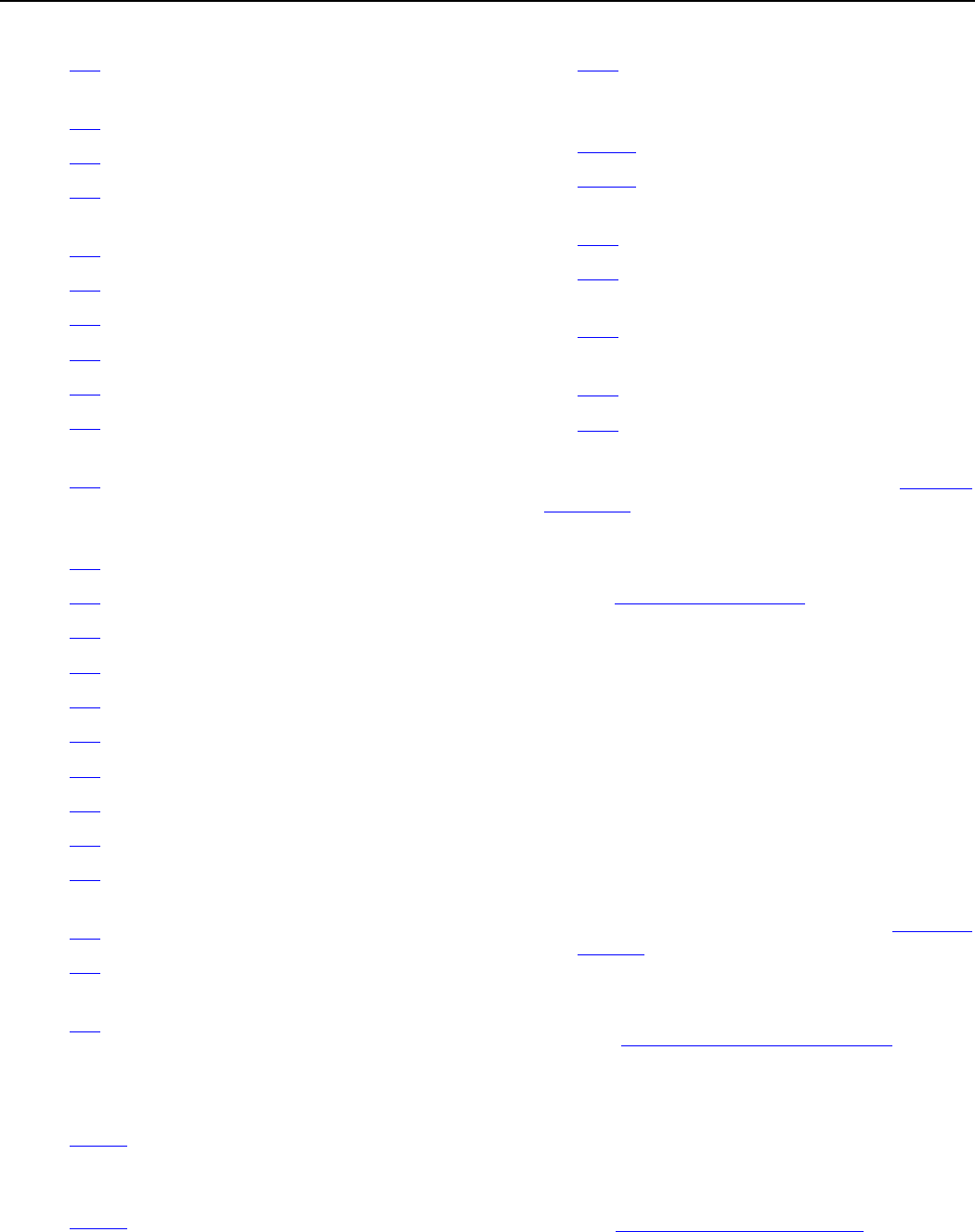
Publication 204
14
219 Hotels, Motels, and Other Lodging
Providers
220 Grocers
221 Farm Suppliers and Farmers
222 Motor Vehicle Fuel Users: Do You
Owe Use Tax?
223 Bakeries
224 Veterinarians
225 Beauty and Barber Shops
226 Golf Courses
228 Temporary Events
229 Brackets for Collecting Wisconsin
Sales or Use Tax Paid on Retail Sales
230 Sales and Use Tax Information for
Sellers of Antiques, Crafts, and Art-
work
231 Manufactured and Modular Homes
232 Dentists
233 Newspaper Publishers
234 Printers
235 Advertising Companies
236 Restaurants and Bars
239 Campgrounds
240 Digital Goods
245 Schools
247 Commercial Radio and Television Sta-
tions
403 Premier Resort Area Tax
405 Wisconsin Taxation of Native Ameri-
cans
410 Local Exposition Taxes
Fact Sheets
No. Title
2101-1 Exemption for Qualified Research
From January 1, 2012 Through July 1,
2013
2101-2 Exemption for Qualified Research
On and After July 2, 2013
2102 Exemptions Relating to Raising Ani-
mals Sold for Use in Qualified
Research and Manufacturing
2103-1 Native American Tribes
2103-2 Sales to Native American Tribal Mem-
bers
2104 Use Tax
2105 Chambers of Commerce – Sales and
Use Tax Examples
2106 Occasional Sale Exemption for Non-
profit Organizations
2107 Rentals of Multipurpose Facilities
2108 Car Wash Services
Notification of new and revised publications will be
sent to subscribers of the sales and use tax electron-
ic mail list.
3. Wisconsin Tax Bulletin
The Wisconsin Tax Bulletin is a quarterly publi-
cation of the Department of Revenue which is
available on the department’s website. The Bul-
letin includes information on most taxes
administered by the Department of Revenue,
including sales and use, income, franchise, and
excise taxes. It includes up-to-date information
on new tax laws, interpretations of existing
laws, and information on filing returns. It gives
brief excerpts of major Wisconsin tax cases
decided by the Wisconsin Tax Appeals Com-
mission and the courts.
Notification of new bulletins will be sent to
subscribers of the sales and use tax electronic
mail list.
4. Rules - Wisconsin Administrative Code
The Wisconsin Administrative Code includes
administrative rules that interpret the Wisconsin
Statutes. Rules have the force and effect of law.
The Department of Revenue has adopted a
number of rules pertaining to sales and use tax.
5. Topical and Court Case Index
The Topical and Court Case Index is a two-part
index. The first part (a Topical Index) will help

Sales and Use Tax Information for Colleges, Universities, and Technical Colleges
15
you find the particular Wisconsin Statute, ad-
ministrative rule, Wisconsin Tax Bulletin tax
release, private letter ruling, or Attorney Gen-
eral opinion that deals with your particular tax
question. The second part of the index (a Court
Case Index) lists Wisconsin Tax Appeals
Commission, circuit Court, Court of Appeals,
and Wisconsin Supreme Court decisions relat-
ing to your question.
6. Electronic Mailing Lists
The Department of Revenue has several elec-
tronic mailing lists available to the public. The
goal is to provide communication from the de-
partment to list members on information and
news specific to the respective list they have
signed up for.
For additional information or to subscribe, go to
revenue.wi.gov/html/lists.html.
VII. ANY SUGGESTIONS?
The Department of Revenue wants this publication to
be as complete and informative as possible. If you
have any suggestions to improve this publication,
please either call or write to:
Wisconsin Department of Revenue
PO Box 8949, Mail Stop 5-77
Madison, WI 53708-8949
(608) 266-2776
